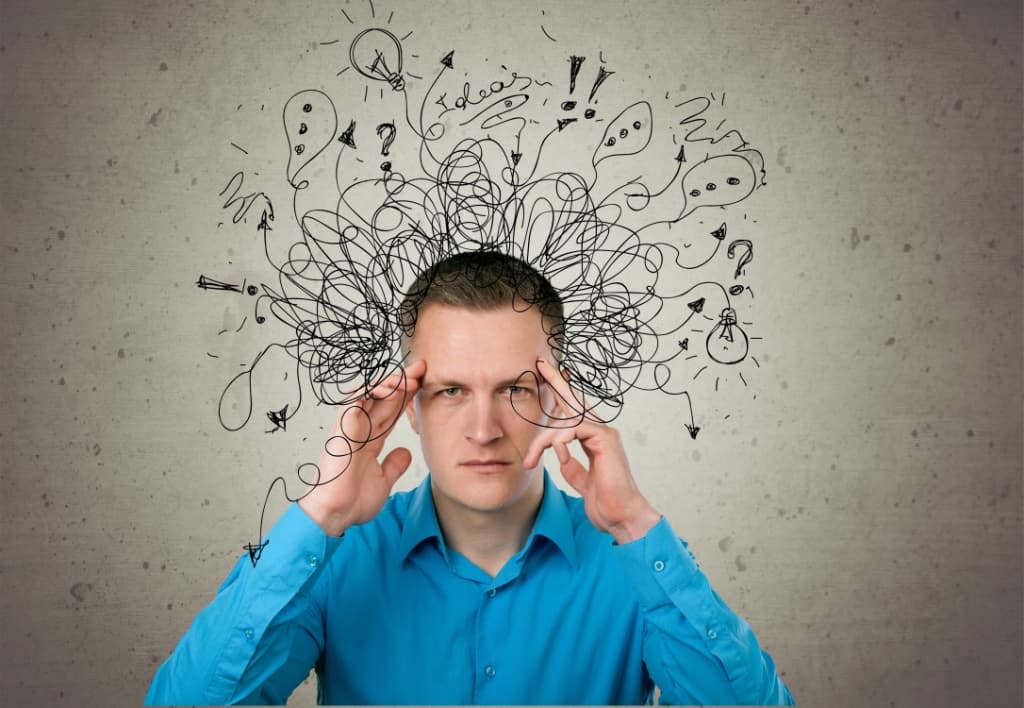ADHD and anxiety are two conditions that can affect children.In some cases, these two conditions present with similar symptoms, making them easy to misdiagnose. Let’s look at what symptoms these two conditions share and the best way to get an accurate diagnosis.
What is ADHD?
Attention-deficit/hyperactivity disorder (ADHD) is one of the most common mental disorders diagnosed in children. It is composed of three aspects of behavior: inattention, hyperactivity, and impulsivity.
Because of this, many children with ADHD struggle with time-management skills, working memory, and organizational skills.
It is estimated that 8.4% of children have ADHD, although ADHD often goes undiagnosed if there are no outward behaviors characteristic of ADHD.
What is Anxiety?
Anxiety is a general feeling of fear, worry, or dread that can interfere with home, school, or extracurricular activities.In some cases, anxiety can make children angry and irritable, and they may act out. Different types of anxiety can affect children, including separation anxiety, phobias, or social anxiety.
The CDC estimates that 7.1% of children have anxiety, but this is another condition that kids may internalize, resulting in missed diagnoses.
The Connection Between ADHD and Anxiety
There is quite an overlap between children with ADHD and children with anxiety, with research showing that up to 30% of kids diagnosed with one also have the other.
Some of the symptoms of ADHD can cause stress in children as they struggle to follow the expected daily routine and complete short and long-term tasks. Unchecked stress may then develop into anxiety.
Children with ADHD also struggle with emotional regulation, which can be challenging if feelings of anxiety creep in. This can result in the child being stuck in an endless cycle of anxious thinking that they cannot break free from.
In many cases, anxiety looks a lot like ADHD in children, so misdiagnosis can occur. Sometimes this can be because a teacher is more familiar with the symptoms of ADHD than anxiety, so they may suspect the wrong condition.
Shared Symptoms
Some habits and symptoms that overlap between ADHD and anxiety in children include:
Inattention
A child that is anxious often internalizes their worries and may check out as they think about them. A parent or teacher may see this and think it is inattention, which is a common symptom of ADHD.
Working Slowly
Children with anxiety also tend to be perfectionists, which often results in them spending a longer time on their school assignments. In comparison, a child with ADHD will take longer to do assignments because of difficulty maintaining attention and poor organizational skills.
Poor Peer Relationships
Children with ADHD may struggle to form friendships because of poor social skills and low impulse control. Children with social anxiety often struggle to make and maintain friendships because they have a hard time regulating emotional thoughts or fear rejection from their peers.
Constant Movement
Children with ADHD suffer from impulsivity and hyperactivity, which can make it hard for them to sit still. Anxious children may tap their feet/fingers or tip their chair, among other movements, to try and manage their anxious energy.
How to Determine the Difference?
The best way to determine if a child has ADHD or anxiety, besides observing other behaviors, is to schedule a neuropsychological assessment. Through this test, you can get a professional diagnosis of your child’s condition, which can help you learn the best way to help them.
If you are interested in learning more about neuropsychological assessments, call Abbey Neuropsychology Clinic for more information or to schedule an appointment.
Sources
[1] https://www.psychiatry.org/patients-families/adhd/what-is-adhd [2] https://www.cdc.gov/childrensmentalhealth/depression.html [3] https://www.cdc.gov/childrensmentalhealth/data.html [4] https://chadd.org/wp-content/uploads/2018/04/coexisting.pdf

Leave a Comment